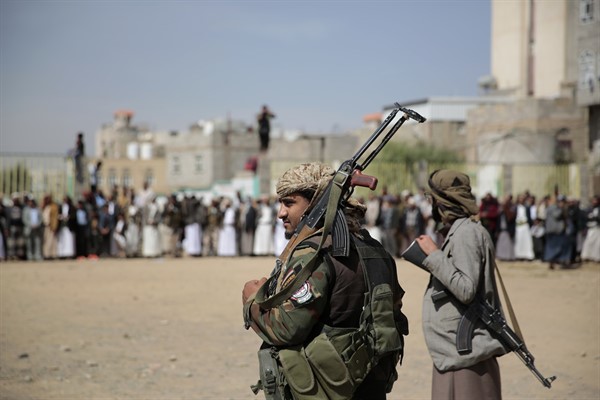Earlier this month, the lead U.N. representative for Yemen announced a two-month cease-fire, the first major breakthrough since 2015 in the conflict between the Houthi rebels and Iran on the one side and the Yemeni government and its Gulf backers on the other. The news was a ray of hope in an otherwise unremittingly troubling international context.
Or was it? Coming on the heels of the Taliban’s assumption of power in Afghanistan and the normalization of Bashar al-Assad’s regime in Syria, the cease-fire, which appears to be the product of Houthi advancement rather than international diplomacy, suggests that, in many cases, it is military might, not a negotiated settlement, that prevails.
This cease-fire is significant. It opens up the major northern port of Hodeida and the air space around the capital, Sanaa, allowing crucial supplies to reach the 21.2 million Yemenis who depend on humanitarian aid for basic survival. Until now, access to or denial of those resources have been used as poker chips by both sides, a form of economic warfare that has been responsible for the majority of the war’s 377,000 deaths since 2015.

